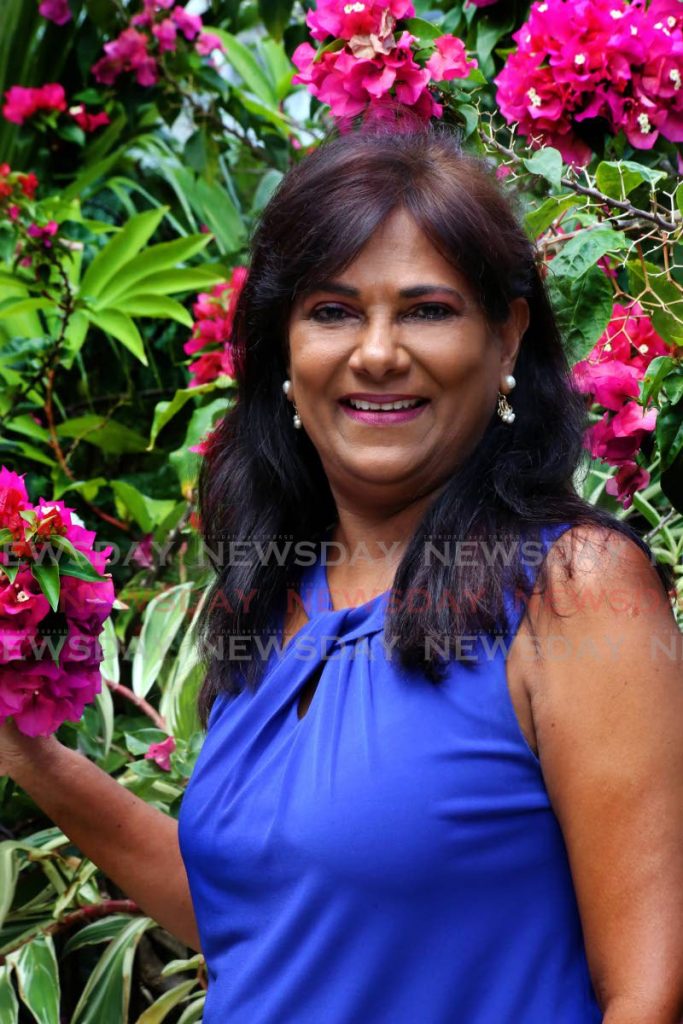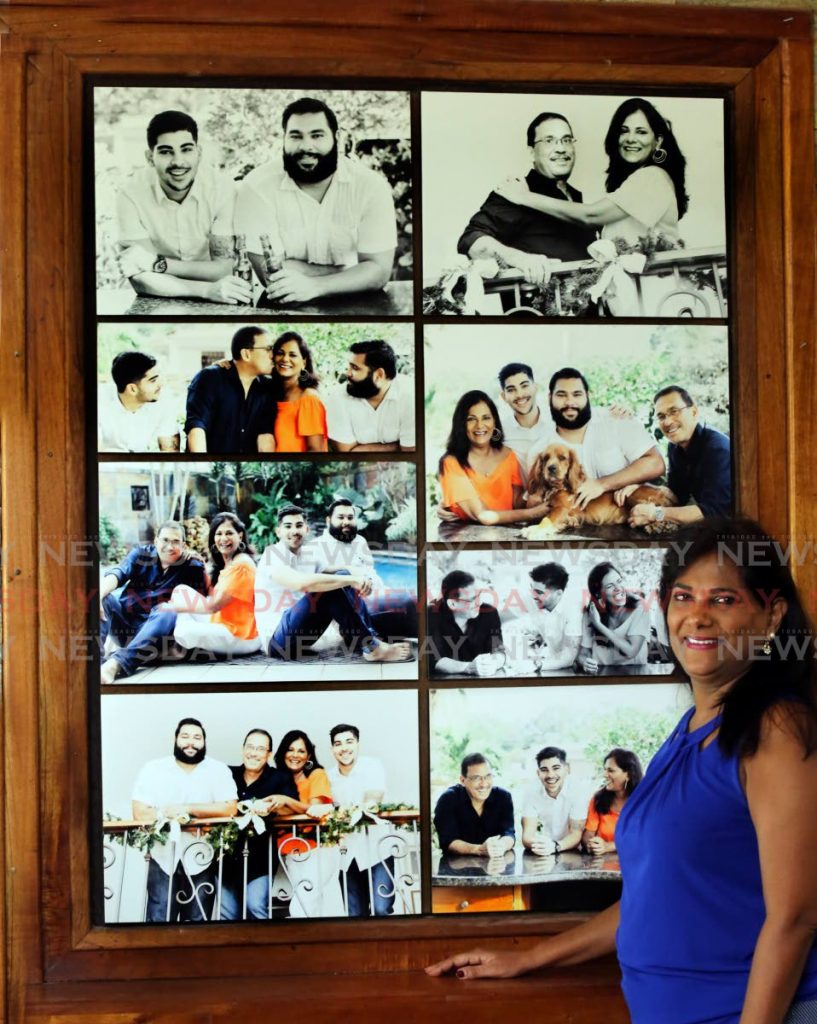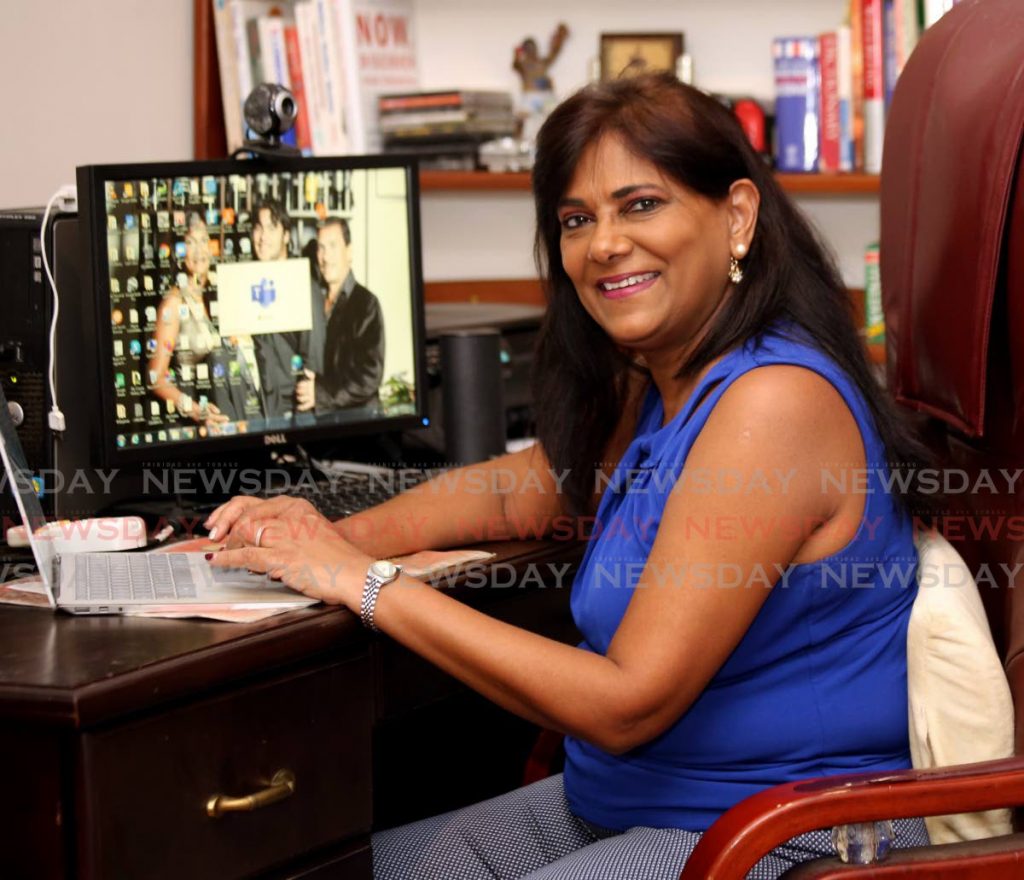Prof Judith Gobin opens portal to science for women, girls

It was 5 am on a day in 1982. Judith Gobin, then an eager marine biologist with an exciting job in a fairly new Institute of Marine Affairs, woke up energised – and although she admits she is not a morning person, she was already out of the house.
She was at the marine institute in short order. From there she and a team of young scientists like herself would join boatmen in Carenage. Before sunrise their boat was launched and they were on their way to South Oropouche, then into the river’s mouth.
The mission was this: using leaf traps, their team had to collect leaf litter and measure the organic carbon in the leaves.
“The organic carbon basically goes into the water and adds nutrients to it. This was one measurement of the productivity of mangroves,” Gobin said.
That morning she embarked on an adventure that would later see the protection of several of TT’s wetland systems, all brimming with life invisible to the naked eye but highly important to the biodiversity of Trinidad. Thanks to that adventure, Nariva and Caroni swamps, as well as other wetland areas in TT are now under environmental protection. Their flora and fauna can be observed and admired on tours, as it does its natural work in ensuring the biodiversity of the island.
It was the first of many exciting moments in her 38-year career, which culminated in her being promoted to the leading expert in marine biology in TT, and being one of the female pioneers in science, technology engineering and mathematics (STEM).

About five years after that adventure she embarked on another one – marriage to her husband Godfrey Araujo, an orthopaedic surgeon. That adventure would see the birth of her two sons, Graham and Jeremy, and a marriage that is more than 30 years strong.
She was able to pursue her career to the highest level, contribute to the country and the world of science on the whole and still able to raise two well-rounded children with their own careers.
Gobin told WMN at her home in Hillock Drive, Diego Martin, that despite the long-standing biases which make things difficult and in many case steer women and girls away from STEM, it is possible to have everything you want: all one needs to do is find the right balance.
Gobin was promoted to professor in the Faculty of Science and Technology at the University of the West Indies (UWI), St Augustine in May 2020, making her the first woman in TT to hold the position in its 72-year history. Following in the footsteps of pioneers like Prof Peter Bacon, certified wetland scientist and lecturer at the UWI, she wishes to continue the conversation about marine life and marine biodiversity not only in the classroom but to put TT on the map in the global conversation as well.
“Becoming a professor is really exciting. It signifies to the academic world and globally that this is your specialty – your area.
“You would have to have published papers on different areas, which I’ve done. It is part of all the work that I have done, including the deep-sea biology.
“One of the things you are supposed to do as a professor, and which I continue to do, is on the international and global scene as well. So I am contributing to a lot of the global discussions that are going on concerning marine and ocean governance and protection of the ocean.”
In a statement last May, the National Institute of Higher Education Research Science and Technology said Gobin is the first and only scientist in TT to have been appointed alongside global scientists to the REV Ocean Science and Innovation Committee; appointed to a global advisory board on deep ocean stewardship; lead other scientists in the development of an intergovernmental science policy on biodiversity and ecosystem services; contribute to the census of marine life; and contribute to the World Ocean Assessment (2015) Report.
Her academic career is expansive. With more than 55 publications in the field of marine ecology and marine biodiversity, she has her bachelor's in zoology/botany and master's in pollution ecology from the UWI in 1982 and 1988 respectively, and her PhD in marine ecology from the University of Exeter.
Her career as a lecturer at UWI started in 2000. Bacon encouraged her to apply. Since then she has been able to contribute to moulding some of the brightest minds in the region in the Department of Life Sciences.
“Dealing with young people and their approach to schoolwork and university lessons, I think I had a good experience of it. I love being around young people. It is just their excitement and eagerness to learn. We at the university are always proud of our students. Of course they love to party and have a good time, but especially in marine biology and these fields, they are always genuinely interested.”
She said she was especially proud of the group of young women in the department who she says she is sure will join her among the ranks of professor in time to come.

International day for women in science will be observed on February 11 and will have the theme “Women scientists at the forefront of the fight against covid19,” in recognition of the critical role women researchers, both locally, in the UWI task force, and globally, in key areas, have done a lot of the research and work in the background which led to several vaccines being developed to combat the virus.
But science, technology, engineering and math simply does not seem like an option for many women.
The UN says globally, only about 30 per cent of researchers are women. Data from UNESCO between 2014 and 2016 says only around 30 per cent of all female students select STEM-related fields in higher education. Global enrolment in ICT is at three per cent, natural science, mathematics and statistics are at five per cent, and there is an eight per cent enrolment in engineering, manufacturing and construction.
Covid19 has not helped. The virus had a negative impact on scientists, especially those just starting, by driving them into domestic situations, as covid19 did for many professional women.
“As a woman, especially in science, I think we have it harder than men. When a child falls ill, it is often the women who has to stay home with the child. It’s those kind of things that you have to deal with. And when you go to work no one wants to hear those stories.”
In fact it was a shock to her that she was the only female professor in the sciences in TT, where the largest faculty is science and technology.
“I didn’t realise it when I was awarded, but it never occurred to me that I am the first woman scientist in a science faculty. Surely something must be wrong with that, because there were a few women who were very good scientists. I am not a reviewer or someone who awards professorships, but I found it interesting that St Augustine had been around for more than 70 years and there had never been one.
“I thought it was a shame. I wondered what took us so long.”
She said there are three professors in the faculty. The highest number at any given time was about five and all were male.

She says while the university churns out more than 400 graduates from STEM they tend not to go into research, but find themselves in teaching jobs.
“It is a comfortable job, but the jobs are very limited in the field of science at the moment. I have been making appeals to the private sector and the government: we need to create more jobs.
“We are training a lot of scientists and researchers. Our students and our academics are world-class. We should be creating centres for science and scientific research.”
Gobin said the university encourages their students to go into their own businesses where they can use their knowledge to contribute to the nation.
She said she hoped government would continue to increase capacity to absorb graduates in the sciences, but in the meantime she encouraged young students to continue pursuing the sciences.
“If covid19 taught us anything, it taught us that the important people when dealing with diseases is, yes, the doctors in the front line, but also important are the researchers in the background."


Comments
"Prof Judith Gobin opens portal to science for women, girls"